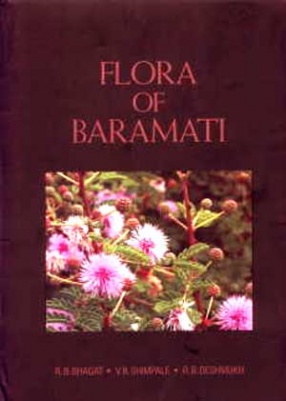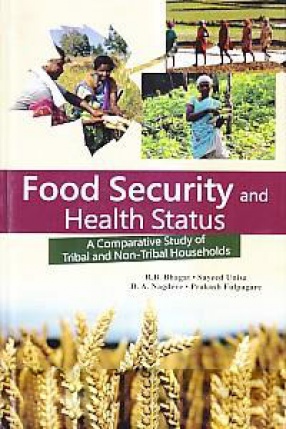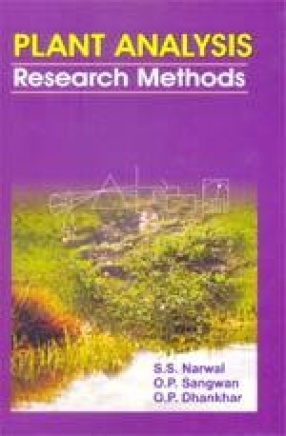Flora of Baramati
In stock
Providing names is of fundamental importance in biology because names enable us to communicate and exchange information about organisms. In fact, in the absence of names, biology has nothing to work with the taxa. Names, therefore are not only tags or labels, rather they are the principal 'books' by which information about an organism is stored. It is obvious that no progress in the utilization of local plants and their products for economic exploitation can really be made without having definite information about their availability both in quantity and quality. Therefore, it is very essential to know the status of plants in a particular area.
Baramati has total geographical area of 1,38,247.9 hector located in Pune district of Maharashtra State. It comprises 117 villages. It lies between 18°3'-18° 12' N Latitude and 74° 13'74° 40'E Longitude. The average altitude of area is about 538 m above mean sea level. The climate of Baramati is designated as 'hot'. It has district semi-arid zone because of rain shadow effect of the Western Ghats.
The flora presents an up-to-date floristic account of flowering plants of Baramati. Flora constitutes total 994 taxa belonging to 938 species with 42 varieties and 14 sub-species, 577 genera and 136 families of flowering plants have been recorded and described in the flora. Nomenclatural changes have been updated in the book. It is a comprehensive and dependable source of information on flowering plant species of the region.
The book will serve the purpose of students and teachers of biology, agriculturists, ecologists, environmentalists, foresters, medical practitioners, economist, sociologists, industrialists and persons interested in flowering plants of the region.








There are no reviews yet.